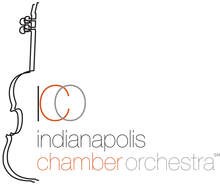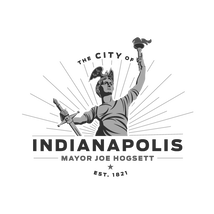What is our Vision? Why do we study music?
“Music exists for the purpose of growing an admirable heart.” S. Suzuki
One would naturally think that the Primary Goal of studying a musical instrument is to learn how to play that instrument. Right?
Actually... There is a better goal! MANY better goals, in fact!
Actually... There is a better goal! MANY better goals, in fact!
The Primary Goals (plural!) for a child to study a musical instrument are to:
- Develop poise & the ability to present themselves in public
- Develop a lifelong love of music
- Develop problem solving skills with a healthy confidence in the face of struggles
- Learn to break complex problems down into small components
- Develop fine motor skills & good hand/eye coordination
- Gain a sense of endless possibility
- Find open doors of opportunity
- Develop a healthy sense of self esteem tied to feelings of accomplishment
- Learn to strive for excellence
- Transfer music's unique learning skill set to other subject matters
- Develop an individual "voice" on their instrument which allows for self expression
- Build self confidence
- Learn to create something beautiful
- Develop sensitivity to beauty in the world
- Share a positive emotional experience with their parents around the study of music
- Learn to manage their time effectively
- Choose a social circle of friends who enjoy making music together
- Enhance memorization skills
- Become calm & centered
WOW! Who wouldn't want this for their child? Learning to play the instrument is only the Secondary Goal, through which a child has the opportunity to gain all of the life skills and benefits listed above.
Once we understand and embrace this Vision, it will completely change our approach to lessons, group classes, home practice, recitals, etc. There will always be struggles & challenges, and these are the days when we must especially remember our Primary Goals! The instrument is simply the vehicle used for learning and transformation.
This brings us to the Suzuki Method. This Method was developed in the mid-20th century by Dr. Shinichi Suzuki, who noticed that all children acquire their native language naturally and fluently. He reasoned that if a person has the skill to acquire their mother tongue, then they have the necessary ability to become proficient on a musical instrument. He modeled his method, which he called "Talent Education," after the process of natural language acquisition.
The Suzuki Method is based on the belief that musical ability is not an inborn talent but an ability that can be developed. Any child can develop musical ability. The potential of every child is unlimited. Children learn music in the same way that they learn to speak - by imitating those around them, listening to good examples, and receiving encouragement and support. Dr. Suzuki believed that every child, if properly taught, can and will learn from their environment and is capable of a high level of musical achievement. He also made it clear that the goal of such musical education was to raise generations of children with "noble hearts", as opposed to creating famous musical prodigies.
The Suzuki Method is primarily a philosophy of education which follows a curriculum as laid out by Dr. Suzuki. Supporting the belief that every child has the ability to learn & become musical, it is imperative that we create the right environment for the child to learn and reach his or her highest potential as a person and as a musician.
Essential Components of The Suzuki Method - Creating the "Right Environment"
The Suzuki Method gives us the foundational belief that every child can learn to play the instrument, by establishing the environment described above, including committed & loving participation by the parent(s), listening to the recordings to thoroughly absorb the material, imitation of the recordings and the teacher, constant review/repetition, ear training, and development of a strong memory.
Just as the parent teaches and encourages the child to speak, the parent is also involved in the musical learning of the child. S/he attends lessons with the child and serves as the "home teacher" during the week. The Parent is one of the key components to a successful program. The Parent works with the Teacher to create a positive learning environment for the Student.
The Indianapolis Suzuki Academy Faculty and Board stand committed to providing the best experience possible for each member of the ISA. Each teacher is committed to the philosophy of the Suzuki method. Always acting in a professional and respectful manner at all times with a commitment to a high standard of teaching music.
The ISA and its Faculty are all members of the Suzuki Association of the Americas (SAA) and we encourage our families to become members as well. To find out more information, please go to www.SuzukiAssociation.org.
For more information on the Suzuki Method, please refer to the pages about Dr. Suzuki and the Suzuki Method on this website, as well as these pages on the Suzuki Association of the Americas website:
- "Shinichi Suzuki"
Once we understand and embrace this Vision, it will completely change our approach to lessons, group classes, home practice, recitals, etc. There will always be struggles & challenges, and these are the days when we must especially remember our Primary Goals! The instrument is simply the vehicle used for learning and transformation.
This brings us to the Suzuki Method. This Method was developed in the mid-20th century by Dr. Shinichi Suzuki, who noticed that all children acquire their native language naturally and fluently. He reasoned that if a person has the skill to acquire their mother tongue, then they have the necessary ability to become proficient on a musical instrument. He modeled his method, which he called "Talent Education," after the process of natural language acquisition.
The Suzuki Method is based on the belief that musical ability is not an inborn talent but an ability that can be developed. Any child can develop musical ability. The potential of every child is unlimited. Children learn music in the same way that they learn to speak - by imitating those around them, listening to good examples, and receiving encouragement and support. Dr. Suzuki believed that every child, if properly taught, can and will learn from their environment and is capable of a high level of musical achievement. He also made it clear that the goal of such musical education was to raise generations of children with "noble hearts", as opposed to creating famous musical prodigies.
The Suzuki Method is primarily a philosophy of education which follows a curriculum as laid out by Dr. Suzuki. Supporting the belief that every child has the ability to learn & become musical, it is imperative that we create the right environment for the child to learn and reach his or her highest potential as a person and as a musician.
Essential Components of The Suzuki Method - Creating the "Right Environment"
- Invested parent involvement at lessons and during home practice sessions... Out of the 10,080 minutes in a week, the teacher only sees the child less than 1% of that time! It is vitally important for the parent to work in partnership with the teacher, and make the commitment to be the child's Home Teacher.
- Beginning at as early an age as possible.
- Daily listening to recordings of the Suzuki repertoire. The more the student listens, the more quickly he learns. This approach derives from the way children learn to speak their native tongue.
- Genuine praise and encouragement, loving discipline when necessary.
- Moving in small steps so the child can master the material with a total sense of success, thereby building his confidence and enthusiasm for learning. Each child progresses at his own pace.
- Consistence, diligence & lots of correct repetition (smart work, as well as hard work!).
- Technique taught/learned within the context of musical pieces.
- Retaining and reviewing every piece of music ever learned on a regular basis, in order to raise technical and musical ability.
- Participation in group class and activities.
- Fostering an attitude of cooperation not competition among students, of supportiveness for each other’s accomplishments.
The Suzuki Method gives us the foundational belief that every child can learn to play the instrument, by establishing the environment described above, including committed & loving participation by the parent(s), listening to the recordings to thoroughly absorb the material, imitation of the recordings and the teacher, constant review/repetition, ear training, and development of a strong memory.
Just as the parent teaches and encourages the child to speak, the parent is also involved in the musical learning of the child. S/he attends lessons with the child and serves as the "home teacher" during the week. The Parent is one of the key components to a successful program. The Parent works with the Teacher to create a positive learning environment for the Student.
The Indianapolis Suzuki Academy Faculty and Board stand committed to providing the best experience possible for each member of the ISA. Each teacher is committed to the philosophy of the Suzuki method. Always acting in a professional and respectful manner at all times with a commitment to a high standard of teaching music.
The ISA and its Faculty are all members of the Suzuki Association of the Americas (SAA) and we encourage our families to become members as well. To find out more information, please go to www.SuzukiAssociation.org.
For more information on the Suzuki Method, please refer to the pages about Dr. Suzuki and the Suzuki Method on this website, as well as these pages on the Suzuki Association of the Americas website:
- "Shinichi Suzuki"








